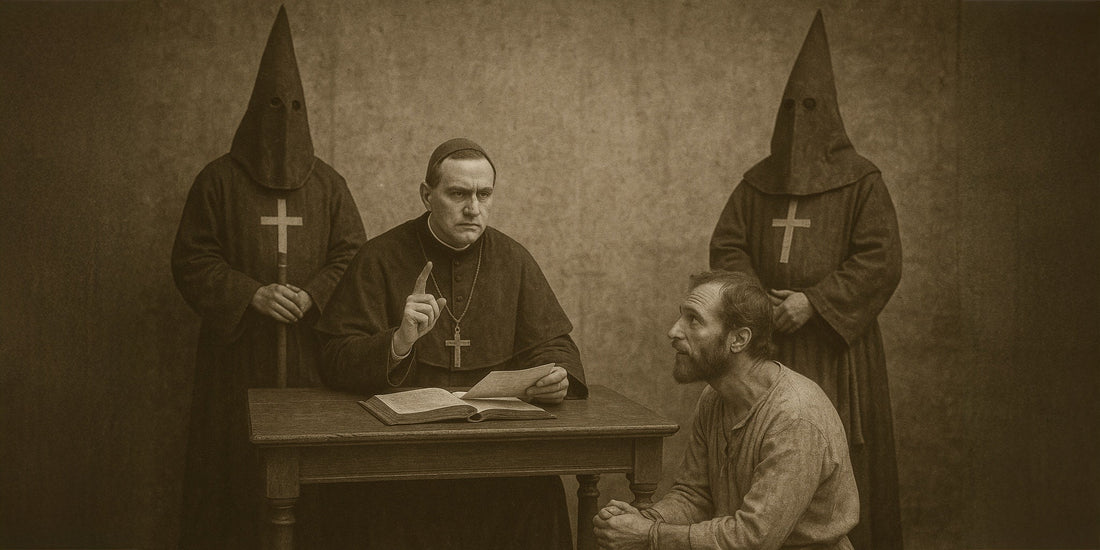
The Sephardic Jews and the Spanish Inquisition
The history of Spain's Jewish population is rich, tragic, and complex. A central chapter of this history begins in the late Middle Ages and extends well into modern times: the history of the Conversos, the so-called New Christians, and their persecution by the Spanish Inquisition. In particular, the concept of "limpieza de sangre"—the "purity of blood"—sheds a telling light on the racializing dynamics of early modern Christianity.
Who were the Conversos?
Conversos were Jews who converted to Christianity in 14th and 15th-century Spain—often under duress. After the anti-Jewish pogroms of 1391, many chose baptism out of fear for their lives. Thus, they formally lost their Jewish status—but in the eyes of many "Old Christians," they remained Jews.
After their often forced conversion, many conversos attempted to gain a foothold in the Christian mainstream. They were often well-educated, spoke Castilian, and engaged in professions such as commerce, medicine, administration, or theology. However, their success and education led to growing envy, mistrust, and resentment among sections of the early Christian population—a breeding ground for their subsequent systematic marginalization.

The beginning of the Inquisition
In 1478, at the instigation of the Catholic kings Ferdinand and Isabella, the Spanish Inquisition was established against "false Christians." Its focus was, among others, on the conversos, who were suspected of secretly continuing to practice Jewish rituals, thus being so-called "Judaizantes." It also targeted Muslim converts to Christianity ("Moriscos") and other individuals with supposedly "apostate" beliefs.
The Inquisition was more than a religious tribunal—it was an instrument of state power. Thousands were denounced, interrogated, tortured, and burned at the stake. The most prominent case is that of Luis de Carvajal the Younger, a Jewish converso in Mexico, who was executed along with his family in 1596.

"Limpieza de sangre" – blood purity as an exclusion mechanism
In the 16th century, the Inquisition's focus increasingly shifted from religious practice to ancestry. Anyone with Jewish or Moorish ancestors—even if the family had been Christian for generations—was considered "unclean." The notion of "purity of blood" ("cleansing of blood") became a powerful tool of social exclusion.
This ideology affected all those whose family background was considered "corrupt." Thus, it was no longer about actual faith, but rather about belonging to a supposedly inferior lineage. Even the Christian faith could not erase this supposed stigma.
The Limpieza ideology became entrenched in statutes regulating access to universities, religious orders, administrative offices, and honorable professions. Anyone who could not prove a "pure" Christian pedigree spanning several generations was systematically excluded. Thus, blood purity became a principle of social selection—an early example of what we now understand as institutional racism: origin became the central criterion for social participation.

Escape and return to Judaism
Many conversos fled – to Portugal, the Ottoman Empire, Italy, North Africa, or the New World. Some found their spiritual home in the Sephardic Jewish communities of the Middle East or in Amsterdam. There, so-called Marrano communities emerged.
The term "Marrano" is originally a derogatory term for Sephardic Jews who converted to Christianity under duress or pressure but secretly maintained their Jewish religion and culture. Today, "Marrano" is often used in research as a synonym for "converso" or "crypto-Jew" to describe these historical Jewish communities.
Their stories—full of identity conflicts, cultural hybridity, and resistance—are once again the subject of intensive research. They also touch on questions of belonging, assimilation, and cultural memory that continue to concern us today.
Why we should remember this today
The history of the Conversos is more than a historical topic. It is part of Europe's Jewish heritage—a heritage that testifies to persecution, but also to cultural resilience and creativity. Many musical, literary, and intellectual impulses of the early modern period would be unthinkable without the Conversos.
In fall 2025, the JCOM will explore the music and culture of Sephardic Jews in the project THE KEYS OF TOLEDO. This project is funded by the Foundation for Remembrance, Responsibility and Future (EVZ) and the Federal Ministry of Finance (BMF) as part of the "National Socialist Injustice" educational program.
Current concert dates at www.jcom.de/konzerte .

